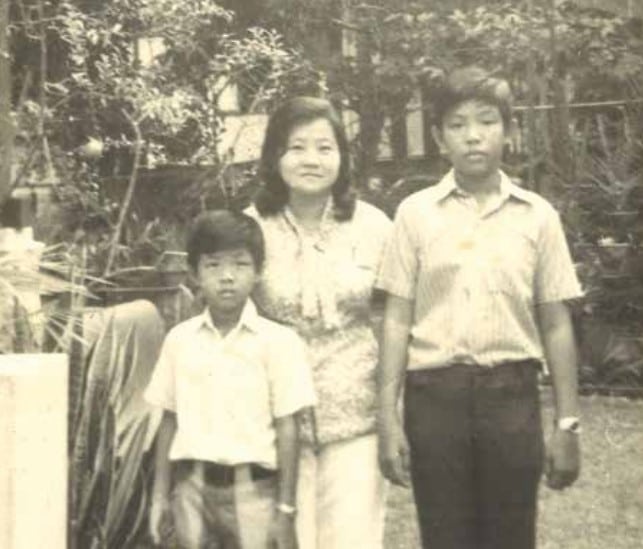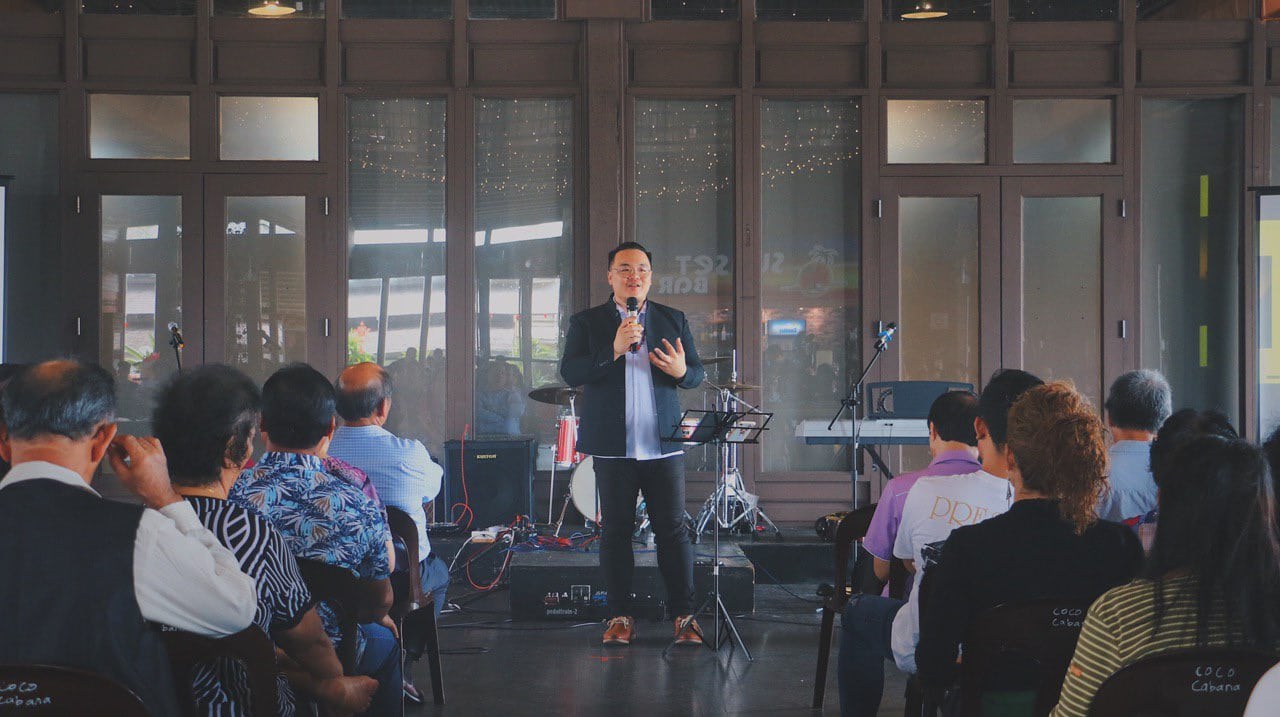Wonder-ful: There’s real purpose to wandering
Margaret Manning // December 30, 2019, 6:00 am

Pure joy: Less is more in aimless wanderings. Photo by Joshua Earle on Unsplash.
Dr John Ratey is a fan of walking with no purpose. A professor of psychiatry at Harvard Medical School, Ratey has done extensive research on exercise, creativity and depression. His research suggests that when we walk without any goal or agenda – when we wander, in other words – our brains are able to pick up more information.
In fact, walking aimlessly allows the free flow of thoughts and ideas that don’t occur when we focus on something specific.
In addition to inspiring creative thought, Ratey has found that exercise can be therapeutic for depression and attention deficit hyperactive disorder (ADHD).
When patients would walk for even 10 minutes a day, these ailments would lift. Dr Ratey notes: “A bout of exercise is like taking a little bit of Prozac and a little bit of Ritalin.”
Who knew that wandering aimlessly could be so good for well-being and creativity?
Unspecific goals
In a fast-paced and efficiency-driven world, these ideas are counter-intuitive. For many, walking without any purpose sounds like a complete waste of time. After all, there is so much to do!
Living life becomes all about doing, without much thought for being.
Days overflow with so many demands on time and attention. Flooded by obligations, it is no wonder that hypertension, depression, and other stress-related diseases are so prevalent.
Living life becomes all about doing, without much thought for being. Exercise, when it is undertaken, is for most just one part of a day’s hoped-for accomplishments.
“Bucket lists” are created so that even the living of one’s life is marked by checking off one event or experience after another. As we move at hyper-speed, wandering for the sake of wandering sounds ridiculous.
The better way
While it would be unlikely to characterise the earthly ministry of Jesus as time spent wandering aimlessly, our efficiency-driven, goal-oriented world might wonder at His unusual pace and priorities during those short three years.
Some might wonder, for example, at the seemingly wasted hours eating and drinking with a sundry and often sordid cast of characters.
Jesus’ life demonstrates a different set of priorities than those that govern most in the modern world.
Luke’s gospel alone mentions meals around the table (or implies them) 10 times, with guests and hosts as diverse as religious leaders and tax collectors, lawyers and well-known sinners.
When a highly regarded official begged Jesus to come and heal his daughter, Jesus is willing to be delayed by an unnamed, unknown woman grabbing the hem of His garment in spite of the throngs of people pressing around.
In other words, Jesus willingly allows Himself to be interrupted by a seemingly unimportant individual, on His way to the synagogue official’s home.
Other times, the gospel writers tell of Jesus going off to “lonely places” to pray.
Even the way Jesus taught spiritual truths – the telling of parables and stories – suggests a whimsy, a wandering from a style of teaching that was purely didactic. And of course, while one could argue that the tremendous amount of time He spent walking the countryside was simply utilitarian, His willingness toward these disruptions, stories, and ministry along the way demonstrate otherwise.
In His footsteps
Why would He have done it this way? From our modern perspective, it can seem like such a waste of time.
Perhaps Jesus understood the power of a long walk with His disciples and the need for a story to pull in listeners.
Didn’t He need to save the world? Weren’t there more important things He should have been doing? Perhaps it is in these examples from His own life where even the casual reader might see a different set of priorities than those that govern most in the modern world.
Perhaps Jesus understood the power of a long walk with His disciples and the need for a story to pull in listeners. Perhaps Jesus understood that looking at the birds of the air and observing the lilies of the field could give life and strength to one’s being, gifts imbued by their Creator.
Perhaps Jesus understood for Himself the power of abiding in God as a result of His time spent alone in prayer.
Perhaps Jesus knew that meaningful accomplishments were not always efficient and output is often a byproduct of input.
Looking to see
Considering Jesus’ way of being in the world – even when He knew His life would be cut short – I have been inspired to think about my own priorities and the manner in which I move through the day.
Generally rushed and hurried, I wander from the path of busyness by rest and withdrawal, prayer and stillness.

Walking the path of stillness could well be like a feeding trough. Photo by Jeremy Lwanga on Unsplash
I stop to notice the purple echinacea plant, rocking in time with the wind. I see the bees gathering pollen on brown cones and antique violet petals. I allow myself to be distracted by the hummingbirds hovering around the feeder.
I wander into my backyard or through my neighbourhood letting thoughts, feelings and prayers rise and fall with my breath and my steps. I allow the precious interruptions of colleagues, family, friends to call me more deeply into the kind of love Jesus demonstrated in His own ministry.
Debunking the list
Meanwhile, all the tasks of the day still hound me. Like barking dogs, they will not relent at demanding my attention. Their urgency conspires against my attempts to intentionally slow the pace of the day.
Busyness is not what is useful nor is it what brings meaning, beauty, joy, or wonder to living.
I hear a persistent chorus singing the minor note that I am wasting my time. I am not immune to the compulsion to view my worth by my productivity, my busyness, or by how many items I’ve crossed off my “to do” list.
And yet, the busyness is not what is useful nor is it what brings meaning, beauty, joy, or wonder to living.
Creating space for wandering in the crowded days and weeks of our lives allows our thoughts to roam toward new priorities and paths, toward encounters along the road that surprise and nourish the soul, like the disciples who walked unknowingly with the risen Jesus.
Wandering – whether that involves the purposeless walking of Dr Ratey, being distracted by beauty in the person right in front of us or in the natural world, or the intentional withdrawal into silence, stillness, and prayer – is itself a purposeful work.
This article was first published on A Slice of Infinity, a ministry of Ravi Zacharias International Ministries, and has been republished with permission.
Reflection and Discussion
- Singaporeans are well-known for being efficiency-driven and goal-oriented; what does that say about our priorities in life? Is there any space in your life for untimely interruptions by colleagues, friends, family and even, God Himself?
- Following the example of Jesus, how can you put aside your this-world agenda and enjoy “wasting” time with God?
We are an independent, non-profit organisation that relies on the generosity of our readers, such as yourself, to continue serving the kingdom. Every dollar donated goes directly back into our editorial coverage.
Would you consider partnering with us in our kingdom work by supporting us financially, either as a one-off donation, or a recurring pledge?
Support Salt&Light



